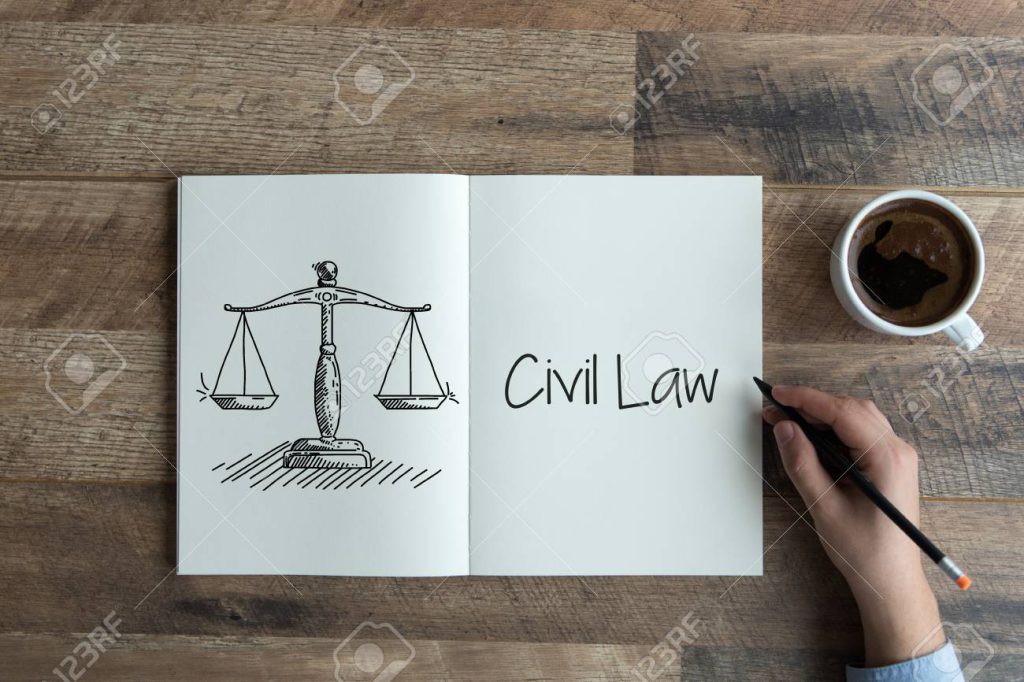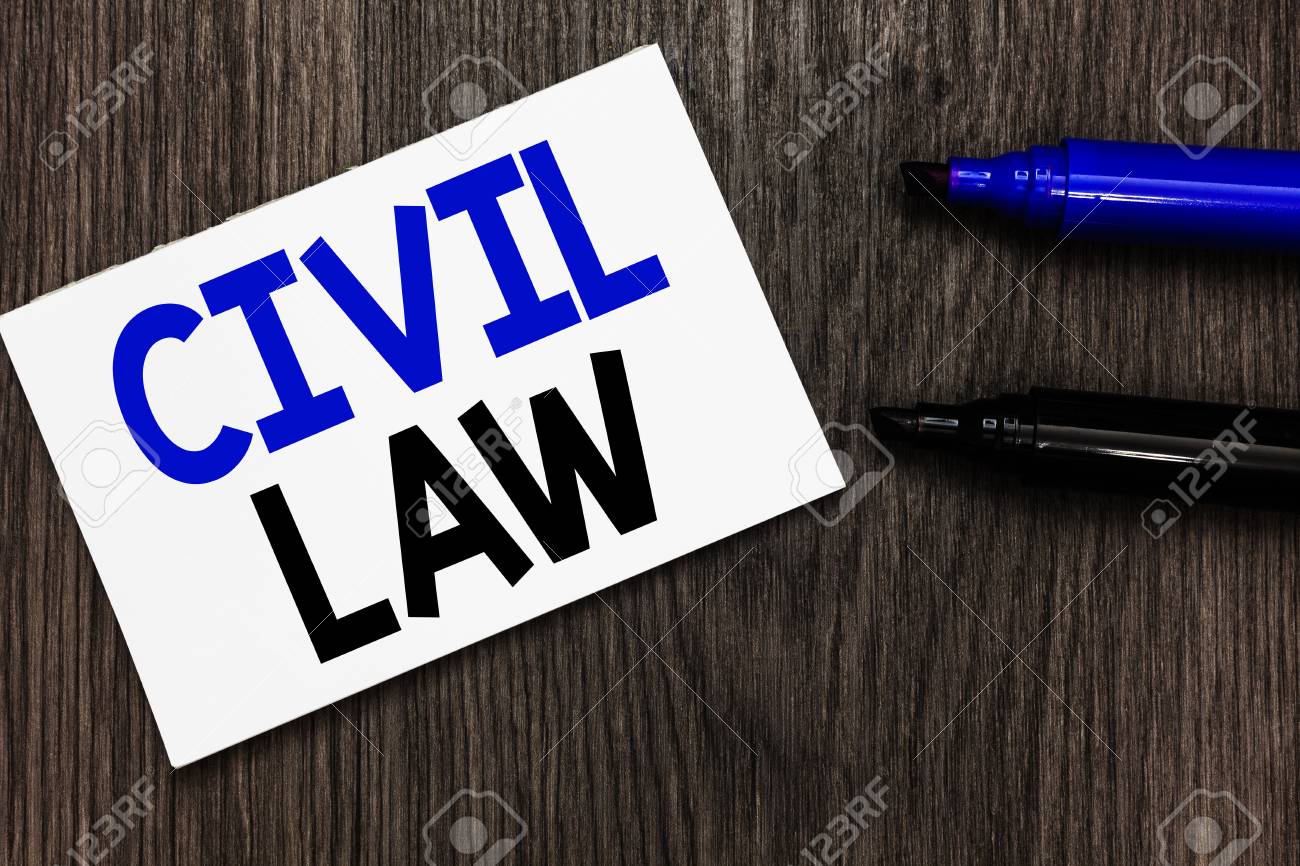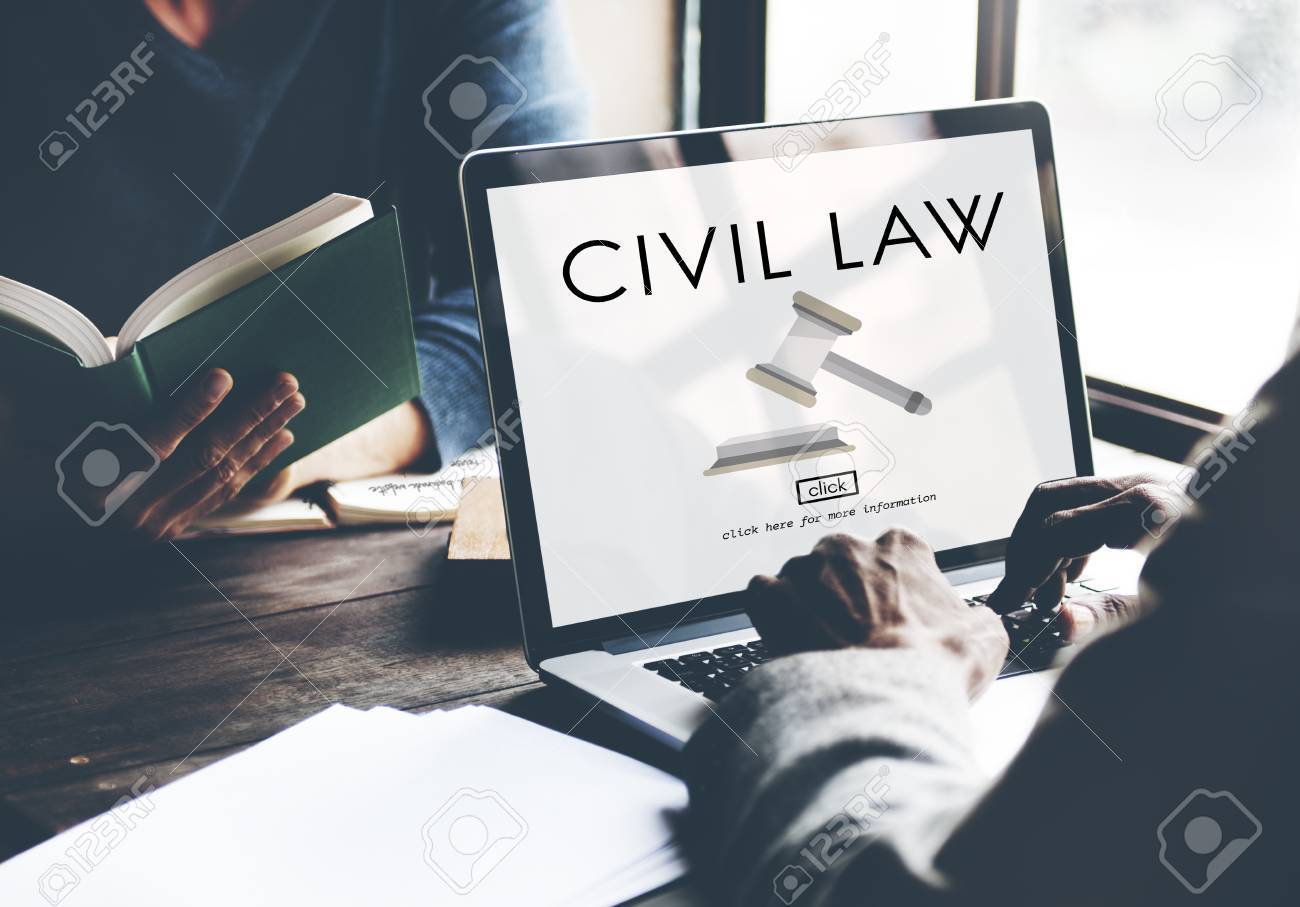Choosing the right civil law attorney is an important decision when it comes to legal matters. A civil law attorney focuses on legal matters such as contracts, torts, business law, and other non-criminal law issues. They provide advice and representation in matters such as real estate transactions, landlord/tenant disputes, wills and trusts, and more. It is important to find an experienced and knowledgeable attorney who can handle your case. This guide will provide you with information on how to choose the right civil law attorney for your needs.
A. Definition of Civil Law
Civil Law is a branch of the legal system that deals with disputes between individuals, businesses, and other entities. It encompasses a wide range of matters, including contract disputes, family law, and real estate. A civil law attorney is an attorney who specializes in this area of law. They are knowledgeable in a variety of legal matters and can help individuals, businesses, and other entities resolve their issues. Civil law attorneys provide advice regarding the legal implications of certain actions and can assist in drafting and filing legal documents. They also represent clients in court proceedings and provide guidance in mediations and negotiations. With their expertise, civil law attorneys are able to help their clients reach the best outcome in their legal matters.
B. Benefits of Hiring a Civil Law Attorney
Hiring a civil law attorney is an important decision, and it can be beneficial in many ways. A civil law attorney specializes in representing individuals and businesses in civil matters, such as contract disputes, real estate transactions, debt collection, and personal injury cases. Here are some of the benefits of hiring a civil law attorney:
1. Expertise: A civil law attorney has the knowledge and experience to effectively handle a wide range of legal issues. They can provide sound advice and counsel on the best course of action to take.
2. Representation: A civil law attorney can represent you in court and provide you with the best possible legal representation. They can also negotiate on your behalf and represent you in settlement negotiations.
3. Advocacy: A civil law attorney can help you understand the legal system and the rights and responsibilities associated with it. They can also provide you with legal advice, review documents, and file motions.
4. Litigation: If you need to take legal action, a civil law attorney can help you navigate the process. They can help you understand the laws relevant to your case, draft documents, and develop a strategy.
Overall, hiring a civil law attorney can be beneficial for many reasons. They can provide you with the legal expertise and representation you need to get the best possible outcome for your case.
II. How to Choose the Right Civil Law Attorney
Finding the right civil law attorney for your case can be a daunting task. Making the wrong choice could have serious consequences for your case, so it is important to take your time and research thoroughly. Here are some tips for choosing the right civil law attorney:
1. Consider experience: It is important to find an attorney who has experience in the area of civil law that you need help with. Make sure you ask about the attorney’s past experience and how they have handled similar cases.
2. Ask for referrals: Ask your friends, family, or colleagues if they have used a civil law attorney in the past. They might be able to provide you with a good recommendation.
3. Check credentials: Make sure the attorney you are considering is licensed and qualified to practice civil law in your state. It is also important to check their educational background and any awards or recognition they have received.
4. Research reviews: Before making your final decision, take the time to research online reviews of the attorney you are considering. This can help you get a better idea of their reputation and the quality of their work.
5. Consider cost: It is important to consider the cost of hiring a civil law attorney. Make sure you are aware of any retainer fees and other costs that may be associated with the attorney’s services.
By following these tips, you can ensure that you choose the right civil law attorney for your case. Take your time and do your research to ensure you make the best decision possible.
A. Consider the Attorney’s Experience and Education
Having an experienced and well-educated civil law attorney on your side can be a great asset when it comes to handling legal matters. It is important to consider an attorney’s experience and education when choosing which one to hire. Experienced attorneys have a good understanding of the laws and procedures related to civil law, and they are often better equipped to handle complex cases.
Education is another important factor to consider. Attorneys who have obtained an advanced degree in civil law may have a better understanding of the legal issues involved and can provide better legal advice. They may also be more familiar with the court systems and legal processes involved in civil cases.
When selecting a civil law attorney, it is important to ensure that the attorney has the right qualifications and experience. It is also important to ask an attorney about their experience and education, and to look for a lawyer who is willing to answer questions about their background and qualifications. By taking the time to research an attorney’s experience and education, you can make sure that you are getting the best representation possible.
B. Determine the Attorney’s Specialization
Finding the right attorney for your case can be a daunting task. It is important to know the different types of attorneys and their respective specializations. A civil law attorney is an attorney whose practice focuses on civil cases, which are disputes between individuals or businesses. Civil law attorneys are knowledgeable in a wide range of areas, including contract law, family law, business law, real estate law, tax law, and more. They are also able to represent clients in court, as well as negotiate settlements and provide legal advice. When searching for a civil law attorney, it is important to look for an attorney who specializes in the specific area of law relevant to your case. This will ensure that you receive the best legal advice and representation for your case.
C. Assess the Attorney’s Availability
When it comes to finding the right civil law attorney, it’s important to assess the attorney’s availability. It’s essential to find an attorney who is available to meet your needs and provide the necessary legal advice and representation. Fortunately, there are a few things you can do to evaluate an attorney’s availability.
First, consider their office hours. Does the attorney have extended hours or are they limited to regular business hours? Is the attorney available to meet with you in person or is phone and video consultation preferred? It’s important to determine whether the attorney can be available when you need them.
Next, look into the attorney’s availability for communication. Will they respond promptly to emails, calls, or messages? How quickly do they return phone calls and emails? Do they offer same-day responses? You should also ask about the attorney’s policy on returning documents and drafts.
Finally, consider the attorney’s availability for court appearances. Will they be able to attend court hearings? Are they able to represent you for a variety of legal matters? Make sure the attorney is familiar with the court system and has the experience to handle your case effectively.
By assessing the attorney’s availability, you can be sure that you are working with someone who is accessible and committed to providing the best legal advice and representation.
D. Examine Their Track Record
Finding the right civil law attorney for your case can be a daunting task. One of the best ways to ensure you’re making the right decision is to take the time to examine their track record. This can help you gain insight into their experience, success rate, and more.
When researching a civil law attorney, start by looking at their case history. How many cases have they won or settled? Have they ever gone to trial? These are all important questions to ask as they can give you an idea of how successful they are in the courtroom.
You should also look into their education and credentials. What type of degree do they hold? Have they been recognized for any accomplishments or awards? It’s important to make sure you’re hiring a qualified professional who can provide the best legal advice for your case.
Finally, look into the attorney’s reputation. Have they received any positive or negative reviews from past clients? Are they well respected in the legal community? This can help you get an idea of how they treat their clients and the quality of their work.
Taking the time to examine a civil law attorney’s track record can help you make an informed decision about who you want to hire. By doing your research, you’ll be able to find the right attorney who can provide you with the best legal representation.
III. Questions to Ask a Potential Civil Law Attorney
If you are in need of legal assistance in a civil matter, it is important to find an experienced civil law attorney who is the right fit for you. To ensure that you are making the right choice, it is important to ask the right questions when interviewing potential attorneys. Here are some important questions to ask a potential civil law attorney:
1. What experience do you have in civil law?
It is important to inquire about the attorney’s experience in civil law. Ask about their knowledge of specific areas of civil law, and the types of cases they have handled in the past.
2. How would you approach my case?
You should ask the potential attorney to explain how they would approach your case. This can give you an idea of how they plan to handle your case and what strategies they may use.
3. What are your fees?
Be sure to ask your potential attorney about their fees. You should also ask about payment arrangements and whether the attorney is willing to work on a contingency basis.
By asking these questions, you can get a better idea of a potential attorney’s experience and how they may approach your case. This can help you make an informed decision when choosing a civil law attorney.
A. What is Your Legal Specialization?
If you’re looking for a legal expert to help you with your civil law needs, a Civil Law Attorney is the way to go. A Civil Law Attorney is a type of lawyer that specializes in civil law, which covers a wide range of legal issues, such as contracts, torts, property rights, and business law. Civil Law Attorneys provide legal advice and representation in matters involving civil law, including disputes over contracts, wills, trusts, property rights, and other legal matters.
Civil Law Attorneys are knowledgeable in the law and can provide guidance on how the law applies to your particular situation. They can also help you with tasks such as negotiation, arbitration, and mediation, as well as representing you in court if necessary. They can also help you understand the legal implications of any agreements you make, and advise you on how to proceed if you have a dispute.
If you are in need of a legal expert with expertise in civil law, hiring a Civil Law Attorney is a great option. They will be able to provide you with legal advice and representation in matters involving civil law. With their expertise and knowledge of the law, they can help you protect your rights and ensure that you get the most favorable outcome possible.
B. What Are Your Fees?
As a civil law attorney, my fees are based on the complexity of the case and the amount of time it takes to resolve the matter. I will discuss the fee structure with you prior to beginning any work so that you are aware of the cost and can make an informed decision. My fees are typically billed on an hourly basis, but I may also offer a flat-fee arrangement depending on the situation. I strive to be transparent and upfront about my fees so that you know what to expect. I am also willing to work with you on payment arrangements to make sure that you can afford the legal services you need.
C. How Many Cases Have You Handled That Are Similar to Mine?
As a civil law attorney, I have extensive experience handling a wide variety of cases. I have worked on cases involving contract disputes, business formation, landlord/tenant disputes, personal injury, and more. I have handled cases that are similar to yours in terms of issues and potential outcomes. I understand the complexities of civil law and am confident in my ability to provide you with the best legal representation possible.
My experience allows me to navigate the complexities of civil law with ease. I am familiar with the procedures, evidence, and legal principles that may apply to your case. I have also handled numerous successful cases with outcomes that have been favorable to my clients.
I understand the importance of finding a civil law attorney who can provide sound legal advice and represent your interests. I am committed to providing the best legal representation available, tailored to your individual needs. If you have any questions about my experience or the cases I have handled, please do not hesitate to contact me.
D. What is Your Availability for My Case?
Are you looking for a civil law attorney to handle your case? It is important to ensure that the attorney you choose is available to take on your case. Knowing what your attorney’s availability is for your case can help you make an informed decision about who is the best fit for you.
When speaking with a civil law attorney about your case, make sure to ask about their availability. Find out when they are available to meet with you, how quickly they respond to emails, and how quickly they can turn around documents. It is also important to ask what their fee structure is for your case. Knowing what to expect in terms of fees and availability can help you make an informed decision about who to hire.
When it comes to legal matters, it is important to find an attorney who is available to meet your needs. Knowing the availability of the attorney you choose is essential for making sure that your case is handled in a timely and efficient manner.
E. How Will You Keep Me Informed During the Course of My Case
As your civil law attorney, it is important to me that you are well informed throughout the course of your case. In order to do this, I have set up a reliable communication system that will keep you updated on the progress of your case.
First, I will provide you with regular updates including any new developments or changes in the case. This will be done via email so that you can easily access the information when needed. Additionally, I am available for phone and video calls to discuss any questions or concerns you may have.
Furthermore, I encourage open communication and will always make sure to respond to any inquiries in a timely manner. I will also provide you with all necessary documents and information related to your case to ensure that you are well informed and prepared for any hearings or court appearances.
Finally, I will always strive to provide you with the best possible legal advice and representation, and will keep you informed throughout the course of your case. If you have any questions or concerns, please do not hesitate to reach out.
IV. Tips for Working with a Civil Law Attorney
Working with a civil law attorney can be intimidating but it doesn’t have to be. Knowing a few tips and tricks can help make the process smoother and more successful. Here are some IV tips to help you get the most out of working with a civil law attorney.
1. Know Your Rights and Responsibilities: Before you even begin working with a civil law attorney, make sure to familiarize yourself with your rights and responsibilities as a client. Knowing this information will help you better understand the process and help you to make the best decisions for your case.
2. Be Organized: Being organized is key when dealing with a civil law attorney. Make sure you provide all the necessary documents and information in a timely manner. This will help your attorney build the strongest case possible and save time.
3. Communicate: Make sure to keep the lines of communication open with your attorney. Keep them up to date on any changes or developments in your case and ask questions when you don’t understand something.
4. Be Respectful: Remember to always be respectful of your attorney and their time. They are there to help you, so make sure to show them the same courtesy you would expect in return.
By following these IV tips, you can ensure that your experience working with a civil law attorney is a positive one. Good luck!
A. Establish Clear Communication
If you are looking for a civil law attorney, it is important to establish clear communication in order to ensure that the legal representation you receive is of the highest quality. A civil law attorney should be knowledgeable and experienced in their field, and should be able to communicate their knowledge in a clear and concise manner. They should also be able to listen to your concerns and questions, and provide you with thorough and accurate answers.
When it comes to communication, it is important to make sure that you and your attorney are on the same page. This means that you should make sure to provide your attorney with all the relevant details about your case, such as any documents or evidence you may have. It is also important to ask your attorney any questions you may have about the case, so that you can be sure that you understand the legal process and the potential outcomes.
Communication is key when it comes to legal representation. A civil law attorney should be responsive to your needs and be able to provide you with information in a timely manner. If you feel that your attorney is not communicating with you effectively, it is important to speak up and express your concerns.
Overall, establishing clear communication with your civil law attorney is essential in order to receive the best legal representation possible.
B. Be Honest and Open
As a civil law attorney, being honest and open is paramount to providing competent legal representation to your clients. In the legal profession, honesty and openness are essential for building strong and successful client relationships. Honesty and openness help to ensure that clients understand their situation and the legal process, and that they can make informed decisions. Additionally, being honest and open helps to demonstrate respect for the law and the legal process, as well as for the client.
It is essential for civil law attorneys to be honest and open with their clients. For instance, attorneys should explain to clients the legal process, potential outcomes, and any risks associated with pursuing legal action. Additionally, attorneys should be honest and open when discussing fees and costs associated with the legal process. Finally, attorneys should strive to be honest and open in all communications with clients.
Ultimately, being honest and open as a civil law attorney is essential for providing quality legal representation to clients. Honesty and openness helps to ensure that clients understand their legal situation and can make informed decisions. Additionally, being honest and open helps to build trust between attorneys and clients, which is essential for successful legal representation.
C. Respect Your Attorney’s Time
It is important to respect your civil law attorney’s time and effort. When you hire a civil law attorney, it means that you are entrusting them with your legal needs and it is important to respect their time and effort. A civil law attorney works hard to ensure that their clients receive the best representation in court and to ensure that their legal rights are protected. It is therefore important to be mindful of their time and to be respectful of their efforts.
When communicating with your civil law attorney, be clear and concise. Avoid long-winded emails and phone calls, and try to make the most of your time with them. Make sure that all of your documents are organized and that you are prepared to answer any questions they may have.
It is also important to be honest and open with your civil law attorney. Do not hide anything from them, as this can lead to serious consequences. They need to know the full extent of your legal situation so that they can properly represent you.
Finally, be patient. Your civil law attorney is working hard for you and will do their best to ensure that you receive the best outcome possible. Have faith in their expertise and trust that they will do their best to get you the results you need. Respect their time and effort, and you will be sure to receive the best legal representation possible.
D. Understand Your Attorney’s Role
A civil law attorney plays an important role in ensuring that citizens’ rights are respected and protected. They are responsible for representing clients in civil court cases, such as contract disputes, personal injury cases, debt collection, or property disputes.
Civil attorneys are knowledgeable in civil law, which includes the laws governing relationships between individuals and the state, including contracts, torts, property, and family law. They are responsible for researching and interpreting laws relevant to their client’s case and for preparing legal documents such as briefs and pleadings. They may also be called upon to give legal advice and represent clients in court.
The role of a civil law attorney is to serve as an advocate for their client, ensuring that their rights are respected and protected. They must be experts in the laws and regulations governing their client’s case. They must be knowledgeable about the court system and how it works, and be able to effectively present their client’s case in court.
Civil law attorneys must also be effective communicators. They must be able to clearly explain the law to their clients, as well as to the court. They must also be persuasive in order to win their client’s case.
In short, a civil law attorney plays a critical role in ensuring that citizens’ rights are respected and protected. They must be knowledgeable in the law and be able to effectively present their client’s case in court. They also must be effective communicators in order to win their client’s case.
A. Summary of Benefits of Hiring a Civil Law Attorney
Hiring a civil law attorney can be a great asset for anyone dealing with a civil law issue. A civil law attorney has extensive knowledge of the laws and regulations that govern civil matters, and they are a valuable resource for helping individuals and businesses navigate the intricacies of the legal system. Here are some of the main benefits of hiring a civil law attorney:
1. Comprehensive Understanding of the Law: Civil law attorneys have an in-depth understanding of the law and how it applies to a wide range of situations. This can be invaluable in ensuring that a civil case is handled properly and that all parties involved are treated fairly.
2. Expert Negotiation Skills: Civil law attorneys are skilled negotiators and can help facilitate the resolution of civil disputes. They can also provide advice on the best course of action and ensure that the rights of all parties are protected.
3. Access to Resources: Civil law attorneys often have access to resources that can help them build a strong case. This includes access to expert witnesses, legal databases, and other resources that can help them build a strong legal argument.
4. Cost Savings: Civil law attorneys can help reduce costs associated with civil lawsuits. This can include avoiding unnecessary court costs and helping to negotiate settlements that are in the best interest of all parties.
Overall, hiring a civil law attorney can provide many benefits and can be a valuable asset when dealing with civil law issues. They are knowledgeable professionals who can provide invaluable advice and resources to help ensure that civil disputes are handled properly.
B. Benefits of Working with an Experienced Professional
Working with an experienced civil law attorney can be extremely beneficial for those who are facing legal issues. An experienced attorney can provide invaluable advice and guidance in navigating complex legal matters. Here are some of the advantages of working with an experienced professional:
1. Expertise: A civil law attorney has a deep understanding of the legal system and can provide advice on the best way to proceed with any legal issue. They can provide insight into how to effectively navigate a case, as well as how to properly present evidence and arguments in court.
2. Professionalism: An experienced attorney can provide professional representation for any legal matter. They are knowledgeable and experienced in the law, and can provide an unbiased opinion and assist you in protecting your interests.
3. Accessibility: An experienced professional is available to answer questions and provide advice on legal matters. They can also provide legal advice and guidance outside of the courtroom and can help you understand the legal process.
4. Cost-effective: Working with an experienced attorney can be cost-effective. An experienced attorney can provide you with the legal advice you need while keeping costs down.

Overall, working with an experienced civil law attorney can provide many benefits. They have the expertise and experience to provide you with the best legal advice and representation. They are also available to answer questions and provide guidance when needed. Furthermore, they can also help to keep costs low when dealing with legal matters.
In conclusion, it is important to take the time to choose the right civil law attorney for your particular situation. It is important to find an attorney who is experienced in the area of civil law that you need assistance with, as well as someone who is reliable, knowledgeable and trustworthy. Additionally, it is important to consider the attorney’s fees and payment structure, as well as the attorney’s availability and communication style. Taking the time to carefully consider and select the best civil law attorney for your needs can be a wise decision that can help ensure the best possible outcome for your legal matter.










